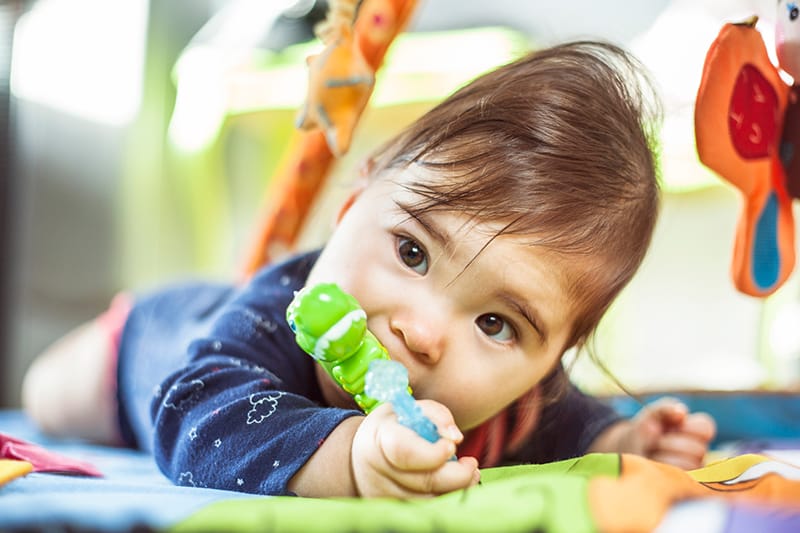Here's what we know about COVID-19, the disease caused by the novel coronavirus, and how it may affect you and your baby.
Posted
by The Iowa Clinic on Wednesday, May 6, 2020
It’s safe to say the current global pandemic is uncharted territory for an entire generation. It’s normal to feel overwhelmed with news, statistics and social-distancing recommendations. And as testing throughout the country increases, we’ll probably notice an uptick in pregnant people testing positive for COVID-19. It’s important to remember, though, that you can take certain precautions to keep you and your baby safe during this time.

11 Common Questions Moms-to-Be & New Moms Have About COVID-19
During normal circumstances, pregnancy and newborn stages serve up a lot of questions. But when experiencing these life-changing milestones during the global COVID-19 pandemic, you’re likely on information overload. We’ve cut through the clutter to provide evidence-based answers to your frequently asked questions about coronavirus.
Am I at a higher risk of getting sick from COVID-19 because I’m pregnant?
According to the Centers for Disease Control and Prevention (CDC), and based on currently available data, pregnant people seem to have the same risk as other adults who are not pregnant.
However, pregnancy causes changes to your body that may make you more susceptible to certain kinds of infections. And pregnant people have a higher risk of developing severe illness with viral respiratory infections, the flu and other viruses from the coronavirus family.
How can I protect myself and my baby from COVID-19?
Here are a few other things you should make part of your normal routine to protect yourself and others:
- Wash your hands frequently with soap and water, or alcohol-based hand sanitizer.
- Disinfect frequently touched surfaces each day.
- Avoid touching your eyes, nose and mouth with unwashed hands.
- Cover coughs and sneezes with a tissue or in the crook of your elbow, and then immediately wash your hands.
- Put at least six feet distance between yourself and others when out in public.
- You may choose to wear a cloth face covering if you’re in public. The CDC recently updated its recommendation for cloth face coverings, which are meant to protect others in case you have or have been exposed to COVID-19.
- Check if your local grocery offers online ordering for pick-up or delivery.
Should I still come into the office for my regular prenatal visits?
Regular prenatal check-ups are an important part of monitoring the health of you and your baby. Talk with your provider to understand your options. In the office, we are taking precautions to protect you, your baby and our staff during this time. We’ve adjusted appointment times to be more spaced out, and we try to schedule prenatal appointments right away in the morning.
Recommendations and guidelines change constantly — always check with your provider or the hospital’s visitor information for the latest.

Looking For a Pediatrician?
When you get closer to delivering, you’ll be asked to name a doctor for your newborn — find one based on location, specialty, rating and more.
Find a doctor
If I test positive for COVID-19, is there a chance my unborn baby or newborn will also contract it? What about pregnancy complications?
It’s unlikely the virus would be transmitted to your child during pregnancy. Based on research of other coronaviruses (and from current COVID-19 data), we don’t think the virus can be passed through the placenta. Also, the virus hasn’t been present in amniotic fluid or breast milk.
After birth, though, a newborn may be vulnerable to person-to-person spread. It may be difficult to keep family and friends from seeing your newborn right away, but following social distancing recommendations is still an important way to keep you and your baby healthy.
According to the CDC, current data doesn’t show any increased risks for miscarriage or fetal abnormalities for pregnant people with COVID-19.
What happens if I have been exposed (or I test positive) for COVID-19 during my pregnancy?
The health of you, your baby and our staff remain a top priority. Please call your provider first to discuss symptoms, detail your exposure and talk through any concerns. Together, you can develop a care plan and manage your symptoms.
Will I still be able to deliver in the hospital like I had planned? Or will my bed be given to a COVID-19 patient?
Yes. COVID-19 patients are treated in isolation, away from other patients. The maternity rooms will remain available, along with your Obstetrics team.
Should I do anything differently to prepare for my labor and delivery due to COVID-19?
Be sure to practice good hygiene and adhere to social distancing guidelines, but the risk of getting COVID-19 in a hospital setting is extremely low. You may experience an additional screening for the virus, and should also prepare yourself for limited visitors while you’re in the hospital.
Around 34 weeks, check in with your provider to talk about any updates to guidelines or concerns you may have about delivery.
Are visitors allowed to see me and my new baby in the hospital?
Probably not. Depending on where you deliver, certain visitor limitations are already in place. Currently in Iowa, you are allowed one support person to be with you during labor, delivery and postpartum. Both of you will likely be screened upon entering the hospital, which may include a temperature check.
Will I need to wear a facemask when I have my baby?
It’s possible that you may be asked to wear a mask during your labor and delivery. Additionally, your support partner will likely be required to wear a mask during their time at the hospital.
Can I still breastfeed if I have COVID-19?
Breast milk is the best nutrition source for most babies, and it provides protective immunity against many illnesses before the baby's immune system is fully functioning. If you have tested positive for COVID-19, please talk with your provider for the latest data and weigh your options.
There are two ways you can provide breast milk to your baby:
- Breastfeed your child directly: The CDC recommends wearing a facemask and washing your hands before each feeding.
- Use a breast pump to express breast milk: The CDC recommends having a dedicated breast pump for yourself and following the instructions for proper cleaning. You should also wash your hands before touching any pump or bottle parts and before using the pump.
- Another consideration: If possible, someone who hasn’t been exposed to COVID-19 could feed the breast milk to your baby.
Have other questions? We’re here to help.
We’re here to keep both you and your baby safe. Guidelines, data and information about COVID-19 are constantly changing, and we’re doing our best to keep you informed with the latest. If you have any questions or concerns, please reach out to your provider.